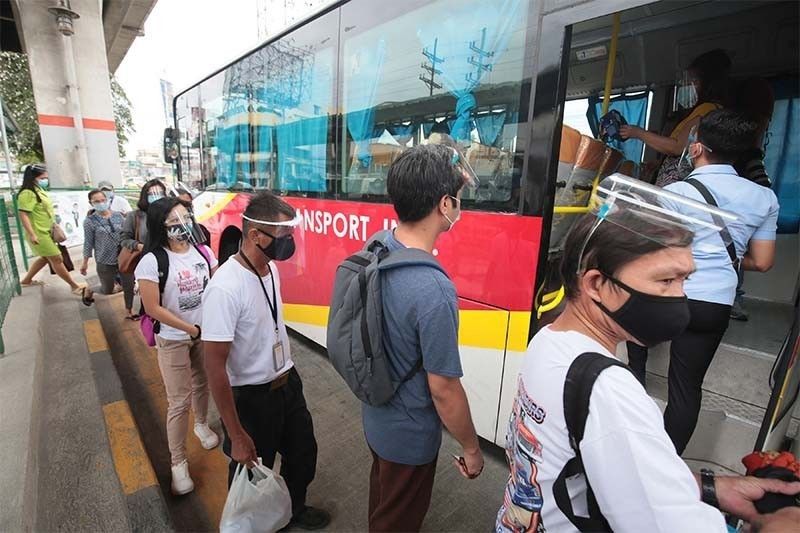DOH urges compliance with protocol vs COVID-19 despite 'pandemic fatigue'

MANILA, Philippines — The Department of Health asked the public to continue practicing health protocols against the coronavirus disease even as exhaustion with pandemic restrictions sets in.
More than eight months since the virus arrived in the Philippines, the health department is still reporting thousands of additional cases every day and parts of the country are still in varying forms of quarantine classifications.
The government is pinning its hope on a coronavirus vaccine to help end the outbreak that has so far infected over 346,000 people, with 6,449 deaths.
“We are all experiencing pandemic fatigue, quarantine fatigue. And we all know that almost all of Filipinos want to go back to normal. But what we always say is that we can never go back to what things used to be. That’s why we have the so-called ‘new normal,’” Health Undersecretary Maria Rosario Vergeire said in a briefing Wednesday.
Vergeire said that the “new normal” requires “sacrifices” such as the wearing of face masks and face shields, maintaining physical distancing and frequent handwashing.
Despite these guidelines, government officials are often seen flouting them with hardly even a reprimand. Even officials at Inter-Agency Task Force on the Management of Emerging Infectious Diseases, parts of which are made public each week, have been seen not wearing face masks or wearing them incorrectly.
Police Brig. Gen. Debold Sinas, a senior police official who held a birthday gathering during the Luzonwide lockdown, remains at his post. Although administrative and criminal charges have been filed against him over the incident, President Rodrigo Duterte has virtually cleared him of liability. The charges against Sinas are not expected to prosper.
“This new normal gives us the assurance that even if there’s a virus in the environment, we will still be protected if we are going to comply with these minimum health standards,” Vergeire said.
Decline in non-compliance
A Social Weather Stations conducted from September 17 to 20—or when most areas of the country were already under modified general community quarantine—found that huge majority of Filipinos continue to wear face masks, practice physical distancing when they go out and wash their hands regularly.
However, the proportion of those who “always” follow health protocols decreased in Metro Manila, the epicenter of the nation’s coronavirus outbreak.
According to the survey, the respondents of those who always us face masks in the capital region was down by 13 points in September from 90% in July.
The proportion of those who always practice proper handwashing also fell in Metro Manila to 63% from the previous 73%.
The number of Metro Manila residents always obedient to keeping physical distance declined slightly to 65% from the previous 68%.
Fatigue, confusion
The decreasing compliance with health measures against COVID-19 in Metro Manila may be attributed to fatigue or social confusion from all dynamics of the pandemic situation “from inner and personal to social belief,” said Froilan Alipao, a professor who teaches sociology in the University of Santo Tomas.
“One possible reason for this fatigue or social confusion is the economic aspect of compliance. People prioritize the need in food and basic requirements instead of face masks, alcohol and face shields,” Alipao told Philstar.com in an online exchange.
“Another, there is low compliance in urban poor communities because of their limited space and economic capacity. The context itself is not favorable for full compliance,” he added.
The World Health Organization earlier said rising levels of pandemic fatigue are being seen in Europe, which is experiencing renewed increase in coronavirus cases.
“It has come at an extraordinary cost, which has exhausted all of us, regardless of where we live, or what we do. In such circumstances it is easy and natural to feel apathetic and demotivated, to experience fatigue,” Hands Henri Kluge, WHO regional director for Europe, said in October 6.
To make it easier for people to comply, there need to be constant reminders and sustained information-education in different levels and forms of health protocols, Alipao said.
“This would also need a better support system from the government, support groups, churches, and community organizations,” he added.
- Latest
- Trending





























